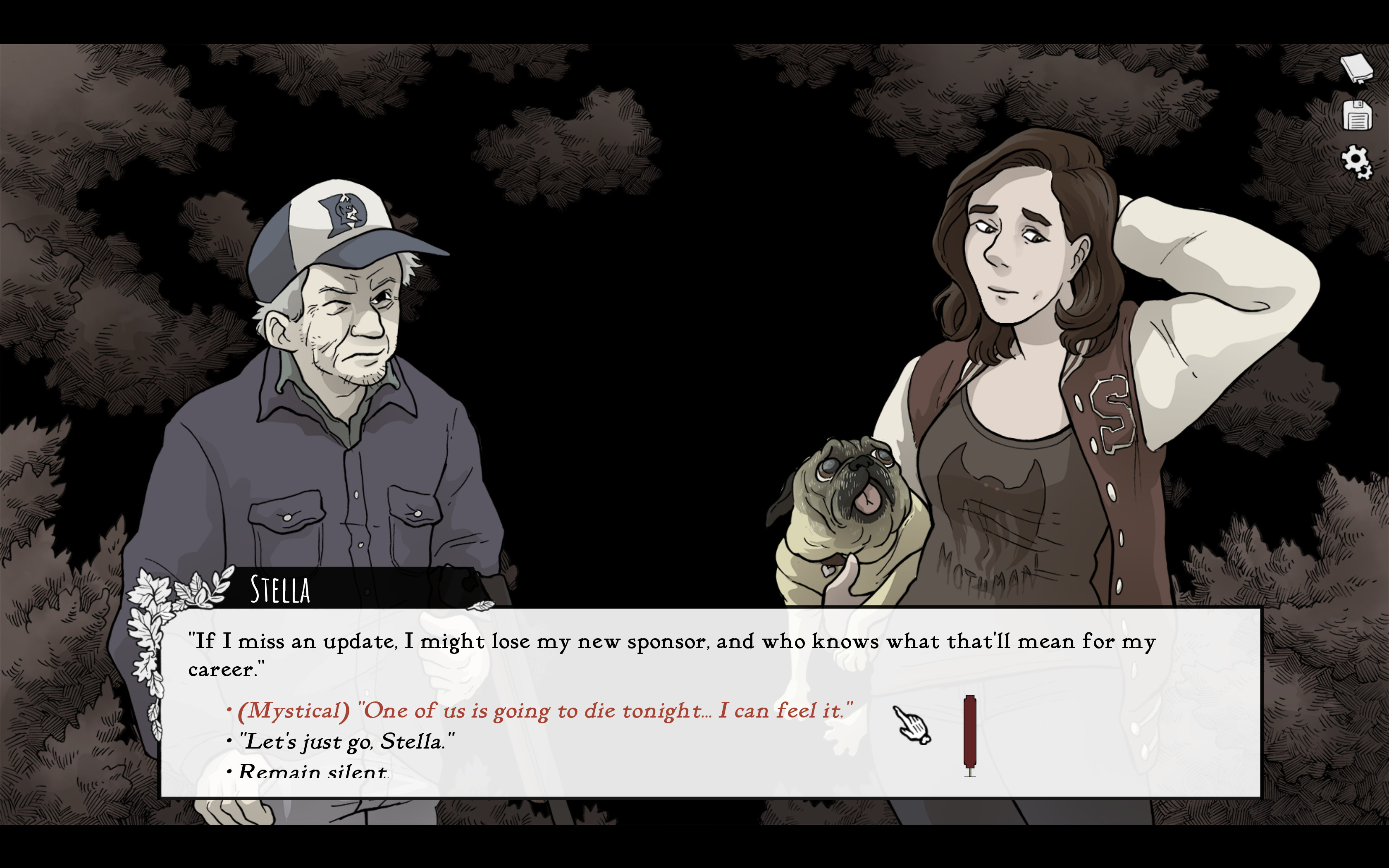


Tabitha is a bit more accepting of the player being nice if they also have more ‘open’ points relative to their ‘closed’ score. Just being superficially nice is something that she despises in people. Tabitha apologizes being testy if the player has been emotionally open with her OR if they’ve been friendly without being overly agreeable.Ĭomplimenting Tabitha makes the player more ‘agreeable’ in her eyes, but without developing other aspects of the relationship, she winds up viewing the player as a bit of a sycophant. Going back to the example of your cousin Tabitha early on, our system lets us look at how genuine the player’s compliments feel to her based on how other aspects of their relationship have developed.Ī peak at how the sausage gets made. This also allows us to look at a single variable in isolation where it’s relevant.įor the most part, when checks come up they’re made against a combination of variables. It lets us keep track of the relative value of the two ends of that axis - an in-game relationship where the player has a ‘reliability’ score of 10 and an ‘unreliability’ score of 0 should be functionally different than a relationship where a player has a ‘reliability’ score of 100 and an ‘unreliability’ score of 90. A character who’s perceived as dull can still be beloved by the other characters (who doesn’t love a himbo?), and may have even lulled them into a false sense of security that could lead to great character moments later in the game.ĭespite being on opposite ends of a given axis, we store opposing qualities as separate variables.

**Spoilers for Scarlet Hollow Episode 1**įor example, choosing to dive for the flashlight instead of Gretchen increments ‘adversarial’, ‘unreliable’, and ‘closed’ by three points each for the player’s relationship with Stella, which in turn makes it harder to pass a check later on in the chapter to mercy-kill Gretchen for Stella instead of letting her do it herself.īefore moving on, it’s worth noting that none of these descriptors are inherently bad or worse than their opposite. In rare, extreme circumstances, a variable might be incremented several times by a single action. In most situations, an interaction between the player character and an NPC (read, choosing a dialogue option) can increment one or more of those 10 variables by one. Is the player seen as observant or sharp by a given character? Do they actively contribute to mystery solving? Are they a himbo/shimbo/thembo?Įach of the 10 attributes described above is stored in a separate variable as an integer. If a character asks the player to do something, will they do it? Can they be trusted with secrets or to have a given character’s back? Does the player take charge in situations around a given character, or do they follow along with other characters’ plans? Likewise, does the player act decisively in stressful situations? Are they direct with their words and desires? Is the player emotionally available to a given character? Does the player share an interest in a character’s feelings and does the player offer up their own vulnerabilities? Does the player tend to agree with or say nice things to a given character? Do they push back when a character is out of line? I know my house is a mess please stop pretending it isn’t.” “Please stop agreeing with everything I say. In the final build of the game, we landed on five axes:
SCARLET HOLLOW ROMANCE PLUS
Instead of a single axis, a binary plus or minus, we created several, each of which measures a different component of a relationship. Trying to map that complexity quickly led to a prototype of the relationship system currently in-game. Would those flattering remarks be seen as genuine, or would they seem like the player was just being superficially nice, or even mocking? Whether or not she would take kindly to those remarks was a looming question.Īnd the answer we settled on was that, well, it depends on the context of the player’s relationship with her. Early on in the game, she guides the player on a tour through the crumbling family estate, and the player can choose whether or not to make flattering remarks about the dusty and decrepit building. This was especially an issue when it came to writing for Tabitha, the player character’s grumpy, if not downright hostile cousin. But we were immediately hit with an even more challenging obstacle: what if the context of your relationship would entirely change how a given action is perceived? We weren’t able to answer those questions using a binary good/bad relationship system, but after a bit of head scratching we assigned some point values and moved on. While there’s no world where Tabitha likes being called #girlboss, exactly how that lands should depend on what kind of relationship you have with her.


 0 kommentar(er)
0 kommentar(er)
